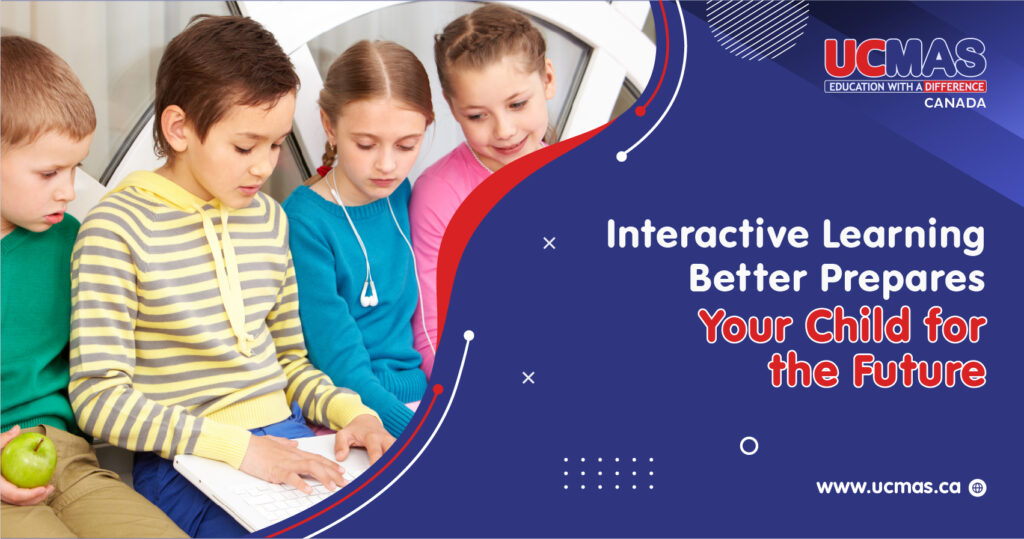Interactive and traditional learning are two educational approaches that have been around for centuries, but in recent years they have become increasingly popular. Both approaches can be used to teach students and help them to develop their knowledge, however they differ in the methods used.
Traditional learning is a more structured approach that relies on lectures or textbooks as the main source of information. On the other hand, interactive learning encourages students to actively participate in their studies by providing them with online tools and activities. This type of learning allows students to gain a deeper understanding of topics as they explore different aspects and extend their knowledge beyond what is taught in traditional classrooms.
Why Interactive Learning is the Future?
In today’s world, teachers are increasingly required to introduce new and interactive ways of learning to help their students retain what they are taught. Mental abacus math is a teaching technique that stimulates children’s curiosity and hones their problem-solving skills. Mental math helps students develop their speed, accuracy, and mental fitness while abacus math encourages students to be creative in solving complex math problems. Both mental math and abacus math work synonymously to better engage students and help them retain what they learn better.
These new methods of teaching not only make classes more engaging for students but also increase their interest in math and other STEM subjects. Therefore, it is important for teachers to incorporate an interactive teaching method into their lessons so that they can foster curiosity and retentive learning amongst their students.
Learning has to be fun and interactive for children to really get engaged and be motivated. Traditional pen and paper methods are great but they are not enough to stimulate curiosity in young minds. That’s where interactive learning comes into play.
Interactive learning instills motivation, curiosity, and encourages creative thinking in children while helping them learn new concepts more effectively. It also helps children develop mental math skills by introducing them to abacus math which involves visualizing calculations in their head instead of writing them down on paper.
This type of learning can be greatly beneficial for children as it makes difficult concepts easier to comprehend and helps them master the fundamentals of math faster.
Abacus mental math is a unique way of learning math with a hand-on approach. Abacus mental math teaches students how to solve math problems without resorting to pen and paper, while abacus math helps students learn how to visualize the problem and understand the relationships between numbers.
Interactive learning also increases students’ confidence while interacting with their teachers and their peers, which helps them understand the concepts better. Through collaboration between teacher and students, both parties can find solutions with ease. This type of interactive learning is especially beneficial for those who struggle in traditional classrooms. Furthermore, brain development programs that include both mental math and abacus math contribute to developing cognitive skills in children as well as adults.
Summer camps and after school programs also offer a great opportunity for students to develop their skills outside the classroom. They provide interactive learning experiences which help to keep students engaged and motivated.
Mental math, abacus math and brain development programs are some activities offered by these afterschool programs. These activities help to build problem solving skills, logical thinking and sharpen mathematical skills in students of all ages.
Students get a chance to practice hands-on activities that stimulate their minds in a fun way, instead of being confined to the traditional lecture-based style of learning. The combination of physical hand-on activity along with mental engagement helps them stay energized and focused throughout the program.
UCMAS is the go-to place to help children develop their cognitive skills, enhance mental math abilities and gain confidence early on. We offer a unique afterschool program to hone the skills of kids through fun-filled activities like abacus math, brain development programs and mental math exercises. Our programs provide an abundance of opportunities for children to explore their potential and become more engaged in learning.
We understand that every child is different, so we ensure that our program is tailored to meet the individual needs of each student. We strive to create an environment where students can learn at their own pace and generate curiosity within themselves about math through healthy competition. With our specialized program, your child will be able to excel in mental math skills and build self-confidence through rigorous abacus math exercises!






